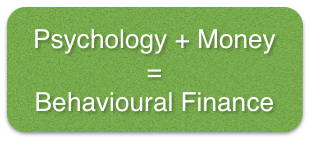Economists for a long time believed (at least wanted to believe) that humans are rational when it comes to decision-making about money, markets and overall economy for that matter. These economists thought that, given two choices, a normal human will take the most rational or profitable decision for himself. But in reality things were different.
Psychology plays a very vital role in how humans perceived money and the value of something they are buying. This caused them to give more money for cheap products or very less money for really valuable things. This is also the main reason we can see so many volatility in the markets and affects how investors or traders make money. This is also the reason why people buy so many things which they don’t have any immediate use for or won’t throw away things that they have never used at all.
This study of combining human psychology and economics is called as Behavioural Finance. Lot of people have researched about behavioural finance and have also conducted numerous experiments to prove that we aren’t as rational as normal economists think we are. Easiest proof you can see is people who buy lottery. Even though they know that the probability of them winning is 1 in Millions, they still buy it hoping they will turn out to be lucky.
Starting from tomorrow, I will be writing a mini-series of posts for the entire week, about the various cognitive biases and fallacies that humans face when it comes to handling money and how it affect their investments or trades.
- Why it is very hard for someone to book losses and get out of a trade?
- How we are not ready to lose something that we have owned for some time.
- Why we can only see news which supports our own views and how it affects our investments?
- Why everyone likes status-quo and don’t want to change?
- … and many more of such biases
It is going to be an interesting week ahead. Make sure you subscribe with your email address below, so that you don’t miss any article.
